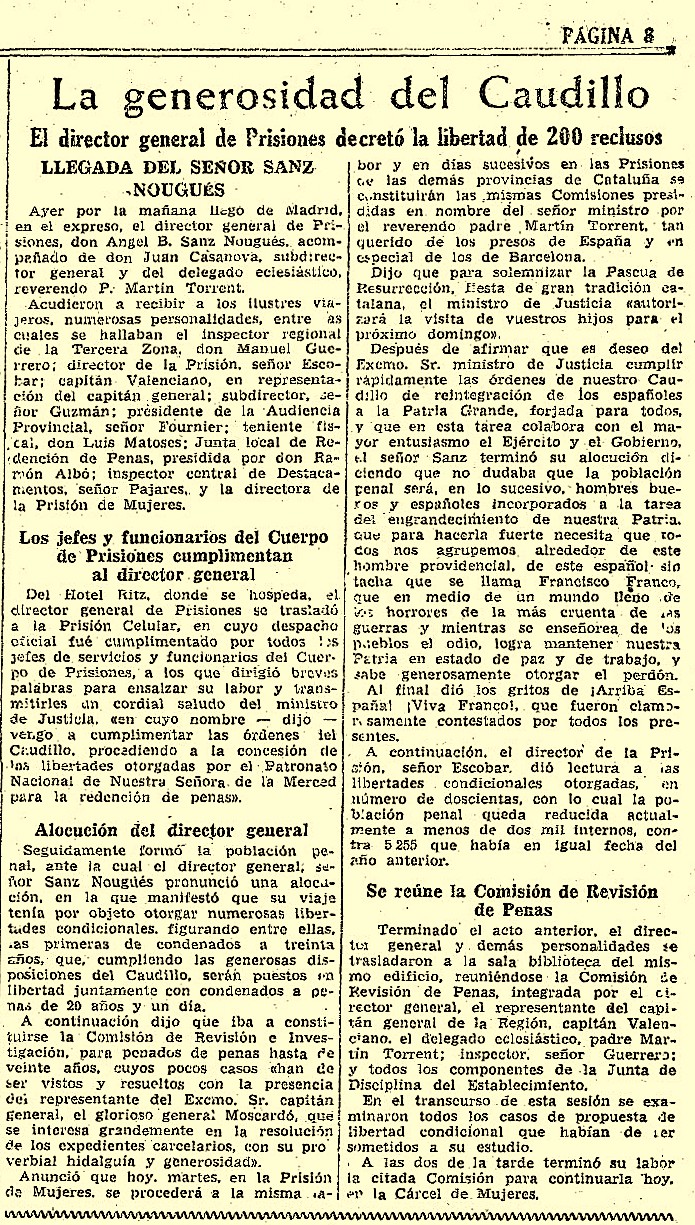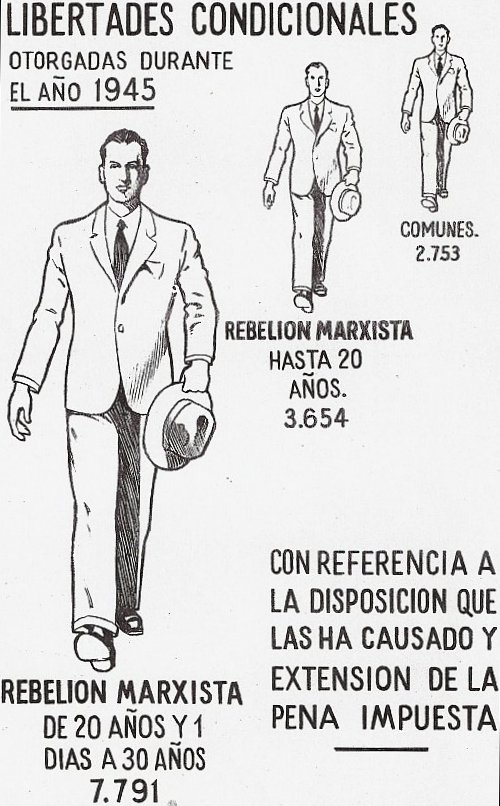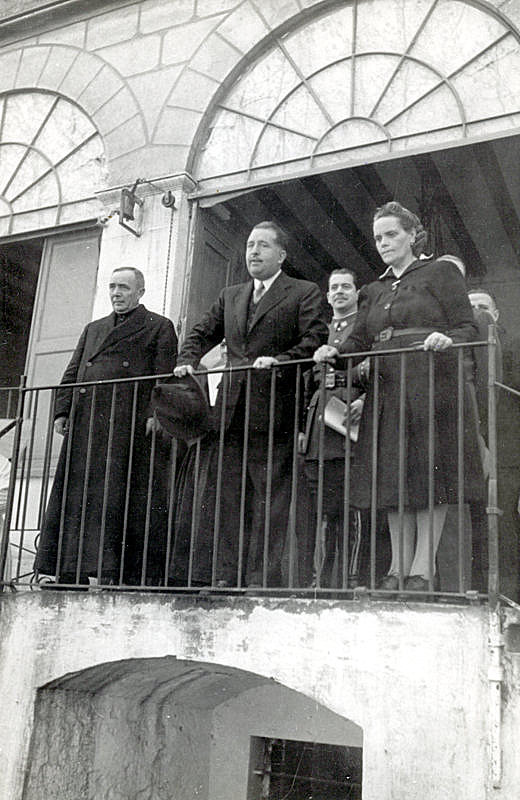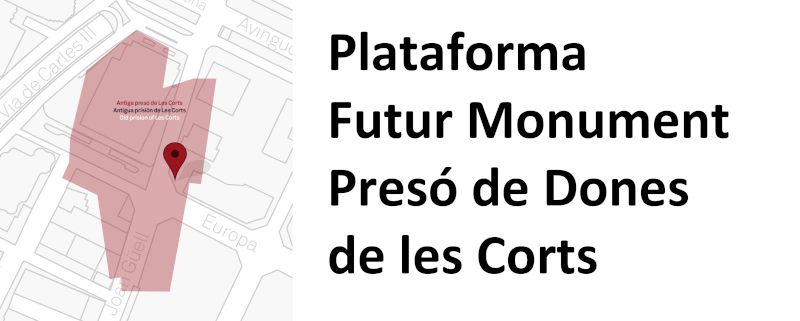Director General Sanz had carried out a similar act of propaganda the day before, 3rd April, when he issued probation orders for around 200 inmates at the Modelo Prison for men. The purpose of the event was none other than to celebrate the "generosity of the Caudillo" towards his former political enemies serving long sentences.
Truly speaking, the flood of decrees reducing sentences and granting probation had been started by the regime through the Patronato de Nuestra Señora de la Merced para la Redención de Penas por el Trabajo, the office of the government charged with the management of the Prison Service, as early as 1941.
On April 1 of that year (a date with particular significance, as it marked the official date of the "liberation of Spain") the release of all those who had been given sentences for "war crimes” of "up to 12 years” was decreed, for crimes committed prior to April 1, 1939.
Successive decrees culminated with the highly publicised Decree of October 9, 1945, by which the government, “with a vast sense of generosity" granted a full pardon to all "prosecuted for the crime of military rebellion" effectively committed before April 1, 1939, with notable exceptions. Be that as it may, by this move, the regime considered the so-called “prison problem” solved, namely the appalling overcrowding conditions, with around 300.000 inmates (war prisoners and otherwise) by the end of 1940.
The Director General of Prisons had been accompanied at the solemn ceremony of issue of probation orders held at Les Corts in April 1944 by the prison deputy director Maria Luisa Contesti MacDonald, former republican prison officer serving in a new capability under the current regime, and Father Martín Torrent, first chaplain of the Francoist Modelo Prison.
The Director General addressed the inmates from one of the balconies, as seen in the following photo by Carlos Pérez de Rozas.
In this other image, the Director General can be seen presiding over the personalities that were part of the Commission for the Review and Investigation of women sentenced to twenty years or less: Captain Valenciano (representing the Captain General of Catalonia), Martín Torrent, and the mother superior of the Sisters of Charity (managers of the prison).
Sources:
AHCB-AF. Pérez de Rozas, CG /3.4-1944; Memoria del Patronato Central de Nuestra Señora de la Merced para la Redención de Penas por el Trabajo de 1945. Madrid, 1946; La Vanguardia Española, 04/04/1944; Law of 1 April 1941 (BOE, 1-4-1941); Decree of 9 October 1945 (BOE, 20/10/1945); HERNÁNDEZ HOLGADO, F. (2005): "Carceleras encarceladas. La depuración franquista de las funcionarias de Prisiones de la Segunda República”, en Cuadernos de Historia Contemporánea. Universidad Complutense de Madrid, Vol. 7, 2005, pp. 271-290; MOLINA JAVIERRE, Pilar (2010): La presó de dones de Barcelona. Les Corts (1939-1959). Barcelona.














